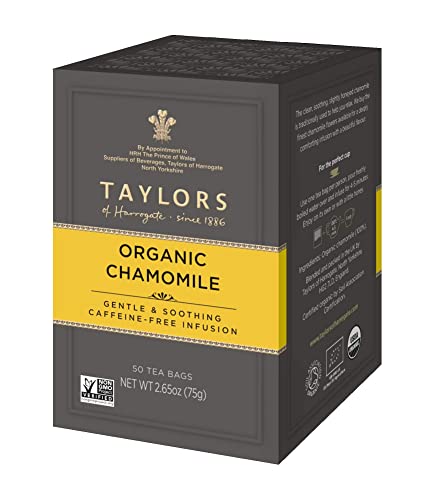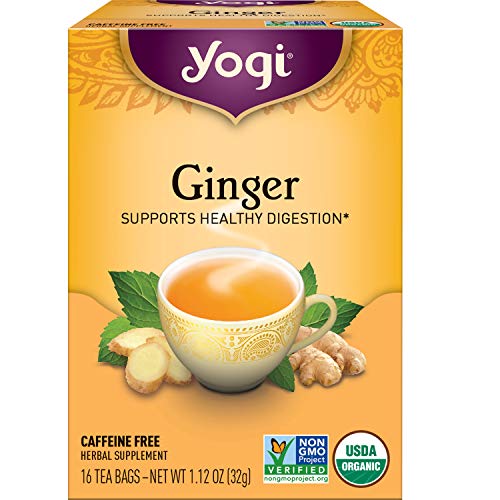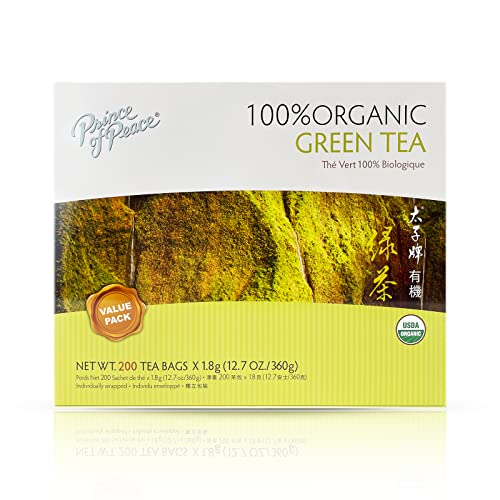Hey there, fellow tea lover! Are you someone who values natural remedies and holistic approaches to wellness? If so, you’re in for a treat! In this blog post, we’ll dive into the fascinating world of organic tea and traditional medicinal remedies. We know that taking care of your health is high on your priority list, and we’re here to help you understand the benefits and differences between these two popular options. So grab a cup of your favorite brew, sit back, and let’s explore the wonders of organic tea together!
Indulge in the Finest Organic Tea Blends – Bestsellers to Satisfy Your Palate
Understanding Organic Tea
Tea has been renowned for centuries as a source of refreshment, relaxation, and medicinal benefits. But have you ever wondered about the difference between conventional tea and organic tea? In this blog section, we will explore the concept of organic tea, how it is produced, and the unique benefits it offers compared to traditional medicinal remedies.
What is Organic Tea?
Organic tea is cultivated using methods that prioritize the health of the environment, the workers, and the consumers. It is grown without the use of synthetic fertilizers, pesticides, herbicides, or genetically modified organisms (GMOs). Instead, organic tea farms rely on natural methods to maintain soil fertility and control pests.
Production Methods
To ensure the highest quality and purity, organic tea production follows strict guidelines. Here are some key methods used in the cultivation of organic tea:
- Natural Fertilizers: Organic tea farmers utilize compost, green manure, and animal by-products to nourish the soil, enriching it with vital nutrients.
- Pest Management: Instead of using chemical pesticides, organic tea growers implement natural pest control methods like companion planting, which involves growing certain plants to repel pests. This reduces the need for harmful chemicals, making the tea safer and healthier.
- Weed Control: Organic tea farmers use labor-intensive approaches such as hand weeding and mulching to minimize weed growth. This ensures the tea plants are not exposed to harmful herbicides.
- Water Conservation: Organic tea farms adopt water conservation techniques, such as collecting rainwater and using drip irrigation systems. These methods not only preserve water resources but also help maintain a balanced ecosystem.
Benefits of Organic Tea
Now that we understand how organic tea is produced, let’s explore the benefits it offers compared to traditional medicinal remedies. Here are key reasons why organic tea should be a part of your healthy lifestyle:
- Free of Harmful Chemicals: By choosing organic tea, you can enjoy a beverage free from harmful pesticides, herbicides, and other chemicals. This reduces the risk of consuming harmful residues that may impact your health.
- Rich in Nutritional Value: Organic tea contains higher levels of essential nutrients, antioxidants, and polyphenols compared to conventional tea. These compounds contribute to overall well-being and may help in fighting against free radicals, reducing inflammation, and promoting heart health.
- Environmental Sustainability: Organic tea farming practices contribute to the preservation of the environment. By choosing organic tea, you support sustainable agriculture and biodiversity conservation.
- Support for Local Farmers: Opting for organic tea supports small-scale farmers practicing sustainable farming methods. It contributes to the local economy and helps maintain a vibrant farming community.
In conclusion, organic tea is more than just a delicious and refreshing beverage. Its cultivation methods prioritize the well-being of farmers, consumers, and the environment. By choosing organic tea, you not only enjoy a healthier beverage but also support sustainable agriculture and contribute to the preservation of our planet. So, why not make organic tea a part of your daily routine and enjoy the benefits it offers?
Traditional Medicinal Remedies
Traditional medicinal remedies have played a crucial role in human societies for centuries. These age-old practices encompass a wide range of treatments derived from plants, herbs, and other natural resources. Passed down through generations, these remedies have evolved into a deep-rooted aspect of many cultures worldwide. In this blog section, we will explore the history and usage of traditional medicinal remedies, their effectiveness, and potential drawbacks.
The Origins and History of Traditional Medicinal Remedies
The history of traditional medicinal remedies dates back thousands of years, with ancient civilizations relying on nature’s bounty to heal ailments. Different regions and cultures have developed their unique approaches and remedies, resulting in a wealth of diverse practices still in use today. Some of the most notable historical roots of traditional medicine include:
- Ayurveda: Originating in India over 5,000 years ago, Ayurveda is one of the world’s oldest medical systems, emphasizing balance and harmony between mind, body, and spirit.
- Traditional Chinese Medicine (TCM): Over 2,500 years old, TCM focuses on restoring the body’s natural balance using herbs, acupuncture, and other holistic techniques.
- Native American Medicine: Native American tribes have long relied on herbs and plants to address various health concerns, with practices varying among tribes.
- Unani Medicine: Developed in ancient Greece and later adopted by Islamic scholars, Unani Medicine integrates Greek, Roman, Persian, and Arab traditions.
Understanding the Effectiveness of Traditional Medicinal Remedies
While modern medicine has made significant advancements, the popularity and continued usage of traditional medicinal remedies highlight their perceived effectiveness. Although scientific evidence may be limited for some practices, many traditional remedies have shown promising results. Here are a few key points to consider:
- Holistic Approach: Traditional remedies often take a holistic approach to treat the individual as a whole, not just a specific symptom or illness.
- Natural Ingredients: Traditional remedies rely on natural ingredients, such as herbs, plants, roots, and minerals, which are considered gentle on the body and have fewer side effects compared to synthetic medications.
- Addressing the Root Cause: Many traditional remedies aim to address the underlying cause of an ailment rather than merely alleviating symptoms, promoting long-term wellness.
- Cultural Significance: Traditional medicinal remedies are deeply ingrained in cultural traditions and often passed down as valuable knowledge from elders to younger generations, strengthening communal ties and preserving unique practices.
Potential Drawbacks and Considerations
While traditional medicinal remedies offer numerous benefits, it is essential to approach them with an informed perspective. Here are a few drawbacks and considerations to keep in mind:
- Lack of Standardization: Traditional remedies often lack standardization in terms of dosages and preparations. This can lead to inconsistencies and potential risks if administered incorrectly.
- Limited Scientific Evidence: While many traditional remedies have been used for generations, scientific studies validating their effectiveness are still ongoing. It is important to consult healthcare professionals and use traditional remedies as complementary practices alongside evidence-based medicine.
- Individual Variations: Everyone may react differently to traditional remedies due to variations in physiology, allergies, and overall health. It is crucial to be aware of personal sensitivities and consult a healthcare professional if needed.
- Cultural Appropriation and Sustainability: When using traditional remedies from another culture, it is vital to show respect, appreciate the cultural context, and ensure sustainable sourcing practices to protect biodiversity.
To summarize, traditional medicinal remedies have a rich history and continue to be valued by many. While further scientific research is needed to validate their effectiveness, these remedies offer a holistic approach, natural ingredients, and a deep connection to cultural practices. It is essential to approach traditional medicines with an informed mindset, working in harmony with evidence-based medicine to find the best approach for individual wellness.
Disclaimer: The content provided here is for informational purposes only. It does not constitute medical advice and should not replace consultation with a qualified healthcare professional.
Comparing the Benefits
Welcome back to our blog! In this article, we’re going to dive deeper into the benefits of organic tea and compare them to traditional medicinal remedies. Get ready to explore the world of natural ingredients, sustainable practices, and potential health benefits!
Natural Ingredients
One of the most notable advantages of organic tea is the use of natural ingredients. Unlike traditional medicinal remedies, which often contain chemicals and artificial additives, organic tea is made from plants and herbs in their purest form. This ensures that you are consuming a beverage that is free from harmful substances, allowing you to enjoy its therapeutic benefits without worrying about adverse side effects.
Key Points:
- Organic tea contains only natural ingredients, with no chemicals or artificial additives.
- Traditional medicinal remedies may include chemicals that could have potential side effects.
Sustainability
Another unique advantage of organic tea is its focus on sustainability. Organic tea farmers prioritize eco-friendly practices that promote a healthy environment. They refrain from using synthetic pesticides and fertilizers, relying instead on natural methods to enhance the growth and flavor of the tea leaves. By choosing organic tea, you are supporting a sustainable industry that values the planet and future generations.
Key Points:
- Organic tea farming practices are eco-friendly and promote a healthy environment.
- Traditional medicinal remedies may rely on synthetic chemicals that can harm the environment.
Potential Health Benefits
While both organic tea and traditional medicinal remedies can offer health benefits, organic tea stands out for its natural healing properties. The combination of the tea leaves’ natural compounds and the careful brewing methods help to preserve the therapeutic qualities. Whether it’s boosting your immune system, promoting digestion, enhancing mental alertness, or soothing a sore throat, organic tea can provide a range of potential health benefits.
Key Points:
- Organic tea offers natural healing properties that are preserved through proper brewing.
- Traditional medicinal remedies may contain artificial ingredients that may not offer the same natural healing properties.
Choosing the Right Solution
To help you see the differences more clearly, let’s summarize the unique advantages of organic tea and traditional medicinal remedies in a comparison table:
| Category | Organic Tea | Traditional Medicinal Remedies |
|---|---|---|
| Ingredients | Natural | May contain chemicals |
| Sustainability | Eco-friendly | May harm the environment |
| Potential Health Benefits | Natural healing properties | Potential artificial ingredients with limited natural healing properties |
As you can see, organic tea offers a range of unique benefits that make it an attractive alternative to traditional medicinal remedies. The natural ingredients, sustainable practices, and potential health benefits all contribute to the overall appeal of organic tea.
So, the next time you find yourself reaching for a traditional medicinal remedy, consider trying out some organic tea instead. Treat yourself, while also supporting a sustainable industry that prioritizes your health and the well-being of the planet.
That’s it for today’s article! Stay tuned for more exciting content on the wonders of organic tea. Cheers to a healthier and more sustainable lifestyle!
Considering Factors
If you’re someone who prefers natural remedies over pharmaceutical options, you may find yourself contemplating between organic tea and traditional medicinal remedies. Both have their own merits and considerations, so it’s important to weigh various factors to make an informed choice that suits your needs and preferences. Here, we will discuss three essential factors to consider: personal preferences, potential side effects, and availability.
1. Personal Preferences
When it comes to choosing between organic tea and traditional medicinal remedies, personal preferences play a crucial role. Here are some key points to consider:
- Taste: Some people may find the taste of certain medicinal herbs or remedies unpleasant, while others may enjoy specific flavors of organic teas. Consider which option aligns better with your taste preferences.
- Cultural or Traditional Background: Certain cultures have longstanding traditions of using specific herbs or medicinal remedies. Connecting with your cultural background can influence your preference for one option over the other.
- Ease of Preparation: Organic tea is generally straightforward to prepare, requiring only steeping in hot water. However, traditional medicinal remedies may involve processes like concoction preparation or intricate blending. Consider which option fits better into your lifestyle and time constraints.
2. Potential Side Effects
Understanding the potential side effects is crucial when choosing between organic tea and traditional medicinal remedies. While both options are generally safe, it’s essential to be aware of any possible adverse reactions. Consider the following:
- Allergies and Sensitivities: Certain individuals may have allergies or sensitivities to specific herbs or ingredients found in either organic teas or traditional remedies. If you have known allergies, do thorough research or consult with a healthcare professional to ensure the safety of your choice.
- Drug Interactions: Traditional remedies and organic teas can sometimes interact with prescription medications. Some herbs may enhance or diminish the effects of certain drugs. It is advisable to consult your healthcare provider before combining herbal treatments with any existing medications.
- Dosage and Overconsumption: Organic teas are generally considered safe when consumed in moderation. However, some traditional medicinal remedies may require precise dosage instructions to avoid adverse effects. Pay attention to proper dosing guidelines and exercise caution to prevent overconsumption.
3. Availability
Finally, the availability of organic teas and traditional medicinal remedies is an important factor to consider. Availability can determine the ease of obtaining and incorporating these remedies into your daily routine. Consider the following points:
- Commercial Availability: Organic teas are widely available in health stores, supermarkets, and online. On the other hand, traditional medicinal remedies may require sourcing specific herbs or ingredients from specialized stores or suppliers.
- Cultivation and Harvesting: If you are passionate about sustainability or supporting local producers, organic teas may be a better choice. However, traditional medicinal remedies may involve sourcing herbs that are cultivated or harvested in a specific region or during a particular season.
- Costs and Affordability: Compare the costs associated with organic teas and traditional medicinal remedies. Keep in mind that certain exotic herbs or remedies may be more expensive due to their sourcing or rarity.
In conclusion, considering personal preferences, potential side effects, and availability are essential in making an informed decision between organic tea and traditional medicinal remedies. By assessing these factors, you can choose the option that aligns best with your needs, preferences, and overall well-being.
Remember, this comparison is meant to provide general information and is not a substitute for professional medical advice. Always consult with a healthcare provider before starting any new herbal remedy or treatment.
Discover the power of nature and traditional healers in maintaining optimal health
In conclusion, we have discussed the differences between organic tea and traditional medicinal remedies. We examined their effectiveness, safety, and environmental impact. Based on these factors, it is clear that organic tea offers a natural and sustainable alternative.
Organic tea has shown promising results in terms of its health benefits and lack of harmful side effects. Additionally, by choosing organic tea, you are supporting sustainable farming practices and reducing your carbon footprint.
Therefore, we recommend exploring the world of organic tea as a viable option for maintaining good health and treating common ailments. Take the opportunity to discover the wide variety of flavors and benefits that organic tea has to offer. Cheers to a healthier and more sustainable lifestyle!












